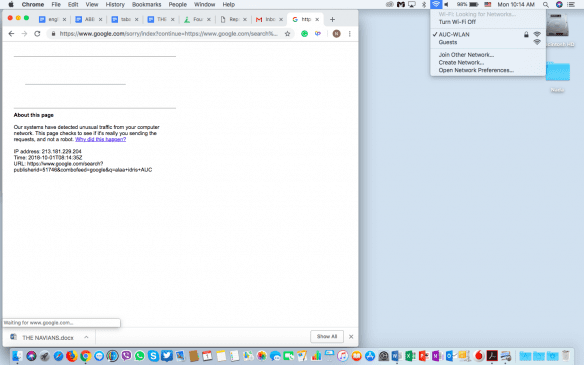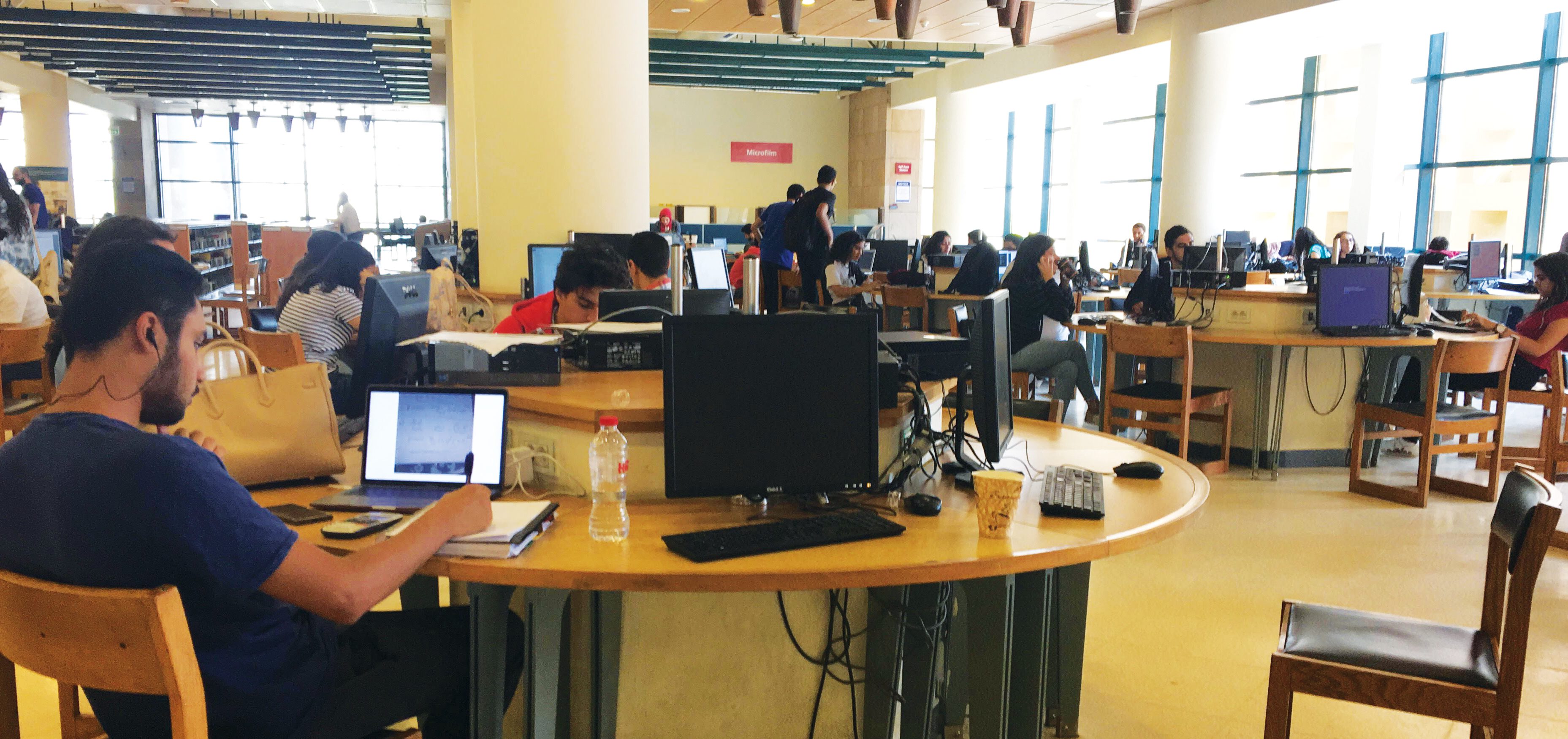The Information Security Office has told The Caravan that it successfully resolved the problem students faced accessing Google while connected to the university’s Wi-fi network.
Since the beginning of the fall semester, AUC students using Google on campus were asked to identify themselves as human users and not bots, or web robots, before accessing the search engine.
This computer identification system designed to distinguish human from machine input is called Captcha.
“The problem is that Google itself captures some kind of traffic as abnormal, accordingly it tries to prove that the user is a human being not a robot, that’s why it uses a Captcha to make sure of your identity,” said Acting Chief Technology Officer and the Principal Campus Information Security Officer Wessam Maher.
By late September, students were beginning to switch search engines to Bing or Safari. Others connected their laptops to a hotspot to avoid the Captcha security feature.
“[My friends and I] were trying to access Google; it didn’t work and at some point, when I wanted to study, I couldn’t because of this issue,” said Computer Science Senior Mohamed Kamal.

Maher says that there are three possible reasons why this security lock occurred throughout the AUC Wifi network.
Google is programmed to prevent any hacking attempts to the system. When the engine gets too many requests from the same source, it automatically requires identification to protect the system.
“Google has specific security rules and some algorithm that we don’t have control of from an IT perspective and we don’t know the rationale behind it,” said Maher.
Another reason may be that some of the users at AUC might have misused the search engine and violated Google rules and the university’s own security rules, even if unintentionally.
Maher said he could not comment on the nature of the violations.
Google could have also identified Malware, a software designed intentionally to damage a computer or a server and with the same effect of a virus, on an AUC computer or a student’s personal computer.
“Google considers AUC as a singular entity so all the users are treated as one source and when Google blocks it, it does for all the entity not a specific person,” said Maher.
Maher said that the problem has been temporarily resolved, but they are still working on a permanent fix.
He said that they are trying to identify the user who initiated the unacceptable Google search to alert them.
They are also searching for any users with a Malware-infected PC so they can help them prevent other security risks.
